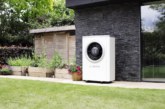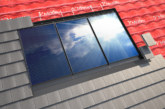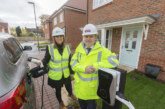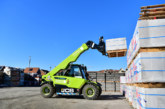
 Martyn Bridges, Director of Technical Communication & Product Management for Worcester Bosch, discusses the prospect of electric-only heating in new builds.
Martyn Bridges, Director of Technical Communication & Product Management for Worcester Bosch, discusses the prospect of electric-only heating in new builds.
As we move into 2021, we take the next slow step towards our 2050 target of net zero carbon emissions. Still a way off, but policies, regulations and changes are already being developed to help us reach the ambitious targets. One such change is looking to install electric heat pumps into new build homes by 2025.
High density housing such as apartment blocks will probably opt for electric or district heating, but the majority will require an electric heat pump. In smaller properties of a high insulation standard there may be a resurgence in electric panel heating, but this is a minority.
It is safe to say that many new builds will need to turn to electric heat pumps, unless an alternative fuel such as hydrogen gas is introduced.
If a heat pump solution is selected, this will require more expense for housebuilders as they are a more expensive technology than the boilers they have been used to installing. This is due to its multiple components as well as larger, more expensive radiators and/or underfloor heating.
It is a whole new way of thinking, meaning builders – whether at the local, regional or national level – will probably be relying on equipment suppliers to provide the designs for this type of system.
If you put costs aside however, electric heat pumps will be suitable for the new build properties more than existing homes because you can start from scratch. When installing a heat pump system there will be a requirement to provide more space for hot water storage, and possible battery storage as well.
Overall, there will have to be an increase in floor area to accommodate the equipment. Currently most new build properties have combi boilers and so don’t need a cylinder, this will have to change from 2025.
While new build properties are suitable for heat pumps, installer skills are in short supply. Although training courses and qualifications are being created to bring installers up to speed, this will still take time for the transition from boiler to heat pump to be possible.
Education will also be required for the homeowner or occupier. User patterns will need to change, if the prospective purchaser is used to a boiler heating system. With a heat pump you cannot switch it on or off intermittently as you would with a boiler.
You must keep certain rooms at certain base temperatures because the heat pump is incapable of heating rooms quickly enough from a cold temperature. This is alien to many people as they find it difficult to understand that you must always leave the heating on.
There may also be an issue with the hot water. Most new builds have combi boilers which allow the owner to access hot water as soon as they turn on the tap. With a heat pump, you must heat up the hot water cylinder before any can be obtained. In a world where we are used to automation, these small changes may prove challenging for some households.
So, from a design and marketing perspective there needs to be a more thorough explanation of how a heat pump system works and how consumer lifestyles will need to adapt to using it.
Electric heating is hailed by many as the only way to remove carbon from home heating due to its connection to renewable production, such as wind. However, the practicalities show that although renewables are gaining traction, a cold snap can exert extreme demand for power from multiple sources and a compromise in the short term would be a mix of energy supply.
I wonder that if instead, the best compromise is for future new builds to opt for heat pumps due to their suitability. While carbon-free gas such as hydrogen can be used for existing homes because that can be done at minimal cost and disruption.








